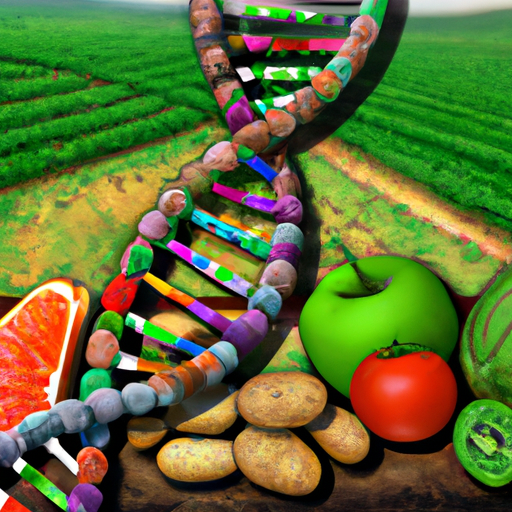Effects of Genetically Modified Foods on Health and Environment
In the current era of technological advancement, food and agriculture are no less part of the evolution. The genetically modified (GM) foods sector has rapidly grown, causing diverse opinions from multiple stakeholders. Scientists, environmentalists, and public health officials often have differing views about the potential health & environmental effects of such products; these perspectives merit a closer look.
Scientific Research on GM Foods
GM foods, also known as biotech foods, undergo alteration by scientists to improve the plant's resistance against pests and to increase its nutritional value, among other benefits. According to scientific research, genetically modified organisms (GMOs) may advance our nutritional intake and agricultural efficiency. For instance, GM rice, also called Golden Rice, incorporates enhanced Vitamin A content, which could help mitigate worldwide deficiency of this essential vitamin.
Public Health Perspective
Public health officials have expressed concerns about the long-term effects on consumer health. The potential for allergic reactions and the unforeseen consequences of antibiotic resistance in humans are frequently cited. Moreover, the apparent lack of transparency in labeling GM products has raised concerns among health practitioners and consumers about what they are eating.
Environmental Perspective
Environmentalists argue that genetically modifying food can lead to environmental hazards. The extremes in plant characteristics may trigger unpredictable impacts on other organisms and the surrounding environment. For instance, a plant engineered to be pest-resistant may affect beneficial organisms like bees and butterflies. There are also concerns that these modified organisms could cross-breed with wild relatives, creating hard-to-control superweeds or other unforeseen consequences.
Potential Benefits and Challenges
Despite these concerns, GM foods can significantly contribute to solving global food problems. They can increase yield, thereby increasing food availability, especially in regions hard hit by climatic changes. Enhanced nutritional value in GM foods could help to reduce global malnutrition rates.
However, these benefits do not negate the need for more comprehensive studies that delve deeper into understanding the potential long-term effects of GM foods on human health and the environment – areas that are currently under-researched and understood.
In conclusion, it's clear that genetically modified foods bear both potential benefits and a measure of risk. The subject requires a thorough, balanced analysis and the concerted effort of scientists, environmentalists, and public health officials to ensure its viability and safety for consumers and the environment alike.

















Comments
Leave a Comment